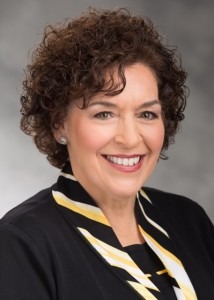Start Your Career Off Right: Corporate Communications
Advice From Industry Experts, Tony Cervone and Bridget Coffing
Published on March 13, 2020, at 3:50 p.m.
by Charlotte Arnold.
Everyone wants to start their career off on the right foot. Your first job is a pivotal stepping stone on your professional journey. Two of the main public relations career paths that people choose are working at an agency and working in house at a corporation.

It is common for graduating students to want to start their public relations careers in an agency. Professionals often suggest starting in an agency, because of the fast-paced, little downtime, hectic learning opportunities that they offer.
In an agency, you work with several different clients. In a corporate setting, it is a deep dive into one client, where there may be several different departments that cover a range of tasks, such as media relations, brand management, research and employee relations.
You do not have to start your career in an agency to reap the learning benefits. Former McDonald’s Chief Communications Officer Bridget Coffing and General Motors’ Senior Vice President of Global Communications Tony Cervone offered insight on how to get the most out of your corporate communication entry-level job at the Plank Center Professionals Roundtable in February 2020. With years of corporate experience, Cervone and Coffing had plenty of advice to share and stories to tell. They explained their strategies for building a successful career.

Cervone has been in his current position with General Motors since 2014. Some of his previous roles were leadership positions at Volkswagen Group, Chrysler Corp., United Airlines and other executive positions at GM.
Coffing started her career in an agency. Now, after spending 30 years working with McDonald’s, it is safe to say that she knows the ins and outs of corporate communication.
Be uncomfortable.
Cervone and Coffing said that the best way to learn is to be uncomfortable — to constantly push your limits and take advantage of opportunities. “If you get comfortable, it’s time for you to go (to another position,” said Cervone. “You can’t grow if you stay in your comfort zone,” he said.
One of the best ways of getting out of your comfort zone is to do more than is expected. Coffing said that at the start of her career, she would volunteer for as much as she could. “Put me in coach!” she would say.
“Find different ways of thinking about things and tackling problems,” she said. It is important to take off your blinders and jump into any learning opportunity presented to you.
Build a network.

Get out of your cubicle and explore different teams and different departments. Try to meet as many people as you can, even if it means going out of your way. Networking will allow you to collaborate with more people and learn from others.
Your network allows you to connect with mentors who can show you the ropes, as well as colleagues with whom to brainstorm. When you are first getting started, it’s OK to not know all of the answers. Cervone said that this inexperience is why you need to build a network to help you.
Cervone and Coffing said that some corporations even offer programs where you can rotate around different departments. The goal is to allow employees to meet people and get a better picture of the corporation’s communication division as a whole.
Be confident.
They agreed that being confident and knowing your own worth is the most valuable insight for an entry-level hire. Cervone said that you do not want to be anywhere with a culture that destroys your confidence.
Your work may be criticized, but do not let that destroy your confidence. “Feedback is a gift,” Cervone said. You are in control of what you do with that feedback, so take it as a learning opportunity rather than discouragement.
“Know who you are and find your voice”
– Bridget Coffing
Cervone and Coffing’s advice does not only apply to corporate communications. Their insight can be applied to any position in any industry.
As an entry-level worker, you do not know everything. You are still learning, so you don’t need to be perfect. Take advantage of every opportunity presented to you. Lean in, and you will set yourself up for a successful career and be headed to the top.




